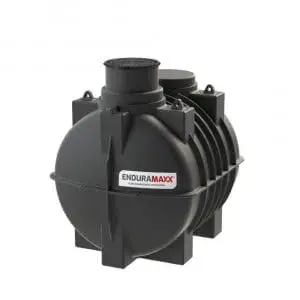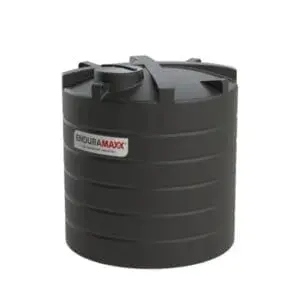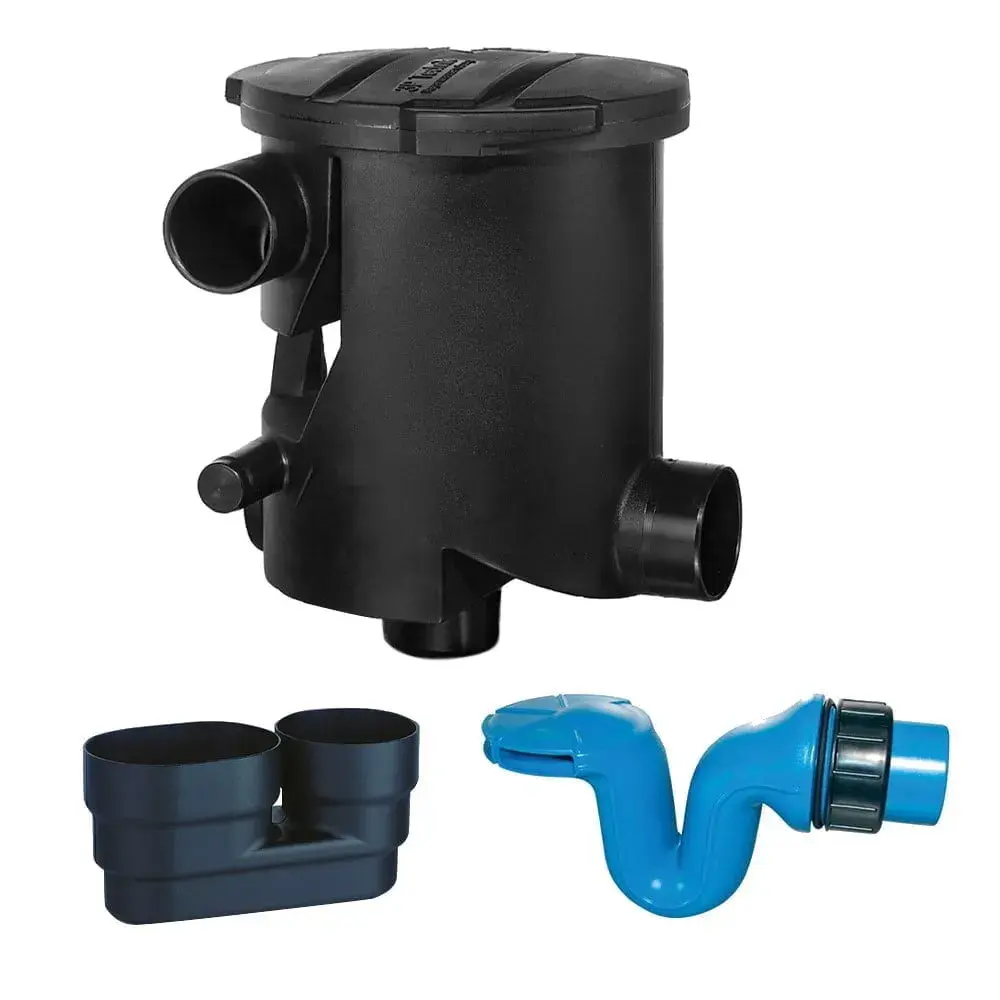No one will argue that our earth continues to suffer from the ever-increasing strain on its resources. Rising human population and growing consumerism have led to an exponential rise in the amount of waste generated across the globe. What many people fail to consider is that this waste does not magically disappear – it must go somewhere, and that includes wastewater.
The collection, treatment, and disposal of the rapidly rising volumes of wastewater generated by humans as well as industries is a challenge that can best be described as a tug-of-war.
The challenges of wastewater treatment and disposal
Municipalities are struggling to meet increasingly restrictive regulations on wastewater and sludge disposal whilst having to manage the rapid rise in wastewater volumes entering the plant. To add to the strain, wastewater is becoming more difficult to treat due to the nature and load of contaminants present.
Adequate treatment of wastewater requires complex technologies that have high capital and operating costs compared to conventional treatment. For example, advanced filtration methods like microfiltration and reverse osmosis are extremely costly to build and operate. However, without these methods, heavy loads of toxic contaminants (including heavy metals) find their way into the environment and accumulate over time. This leads to the degradation of local ecosystems and renders our precious water supplies unusable.
Whilst treatment methods are available for most contaminants, the cost of treatment is usually highly inhibitive. In addition, the cost of disposing of the large masses of sludge generated during treatment is equally challenging.
A different approach to metal recovery from wastewater
All these challenges have prompted many scientists and engineers to change the way wastewater is viewed. Huge amounts of money are spent building complex treatment facilities only to dispose of the final product. Instead of looking at wastewater treatment plants as disposal facilities – why not turn them into resource recovery facilities? Isn’t this the tenet of sustainability?
What are heavy metals in wastewater?
Metals such as Zinc, Copper, Lead, Chromium, Nickel, Cadmium, and many others can be found in large concentrations in both industrial and municipal wastewater. Heavy metals pose the biggest risk to biological and environmental safety due to their non-biodegradable and thus accumulative nature. One such concept is the extraction and recovery of metals from wastewater.
Various technologies exist that can successfully treat wastewater to required regulatory standards whilst simultaneously enabling the extraction of various metals for reuse.
Electrochemical processes for metal recovery
Electrochemical processes such as electro-deposition and electro-deionization are well known for their high level of metal recovery and cost-effectiveness. Electro-deposition is the most common electrochemical metal recovery technique and uses an electric current to reduce dissolved metal ions in wastewater which produces a coherent metal coating at the electrode. The deposited metal can then be collected and reused.
Other processes such as bio-electrochemical and photo-electrochemical methods integrate microbial and electrochemical techniques to produce energy and simultaneous metal precipitation. Both methods have proven effectiveness and high metal recovery rates.
If implemented and operated effectively, the above processes can recover as high as 100% of (some) metals present in wastewater. On average, recovery rates of most types of metals are in the range of 90-100%. When considering the billions of litres of wastewater produced and treated per year across the globe – this can potentially equate to the recovery of millions of tons of metal from wastewater.
Extraction of metals from biosolids
Another alternative is the extraction of metals from biosolids (dewatered sludge produced during the wastewater treatment process). Sludge treatment can often be the biggest cost to municipalities due to the strict conditions imposed by landfills for the disposal of biosolids and odour treatment required. Alternative sludge treatment such as thermal processes and liquid solvent technologies can eliminate the need for costly conventional processes such as anaerobic digestion which requires large upfront capital and has a large land footprint.
Sludge treatment processes such as novel thermal processes and liquid extraction have been proven to effectively treat wastewater sludge whilst simultaneously enabling metal extraction. In some methods, useful by-products such as energy and bio-oil can also be produced during the process. These processes can contribute to a sludge mass reduction of up to 50% meaning that 50% fewer biosolids will need to be disposed to landfill.
A new approach to metal recovery from wastewater
Disposal of wastewater and biosolids into surrounding water bodies and landfills has a catastrophic effect on local ecosystems and precious water sources. Increasingly strict government regulations for the disposal of wastewater have had some positive impacts, but in many cases, the problem is simply shifted from one area to another.
Rather than treating wastewater and sludge that will eventually be disposed of into the environment, we should consider recovering useful resources from these waste streams. The recovery of metals (including heavy and precious metals) from municipal and industrial wastewater is not a new concept. There are many technologies available that have proven their effectiveness with high metal recovery rates.
The billions of litres of wastewater treated annually around the world could potentially recover millions of tons of metal. The financial return on these metals could cover the cost of treatment. This could lead to a reduction in metal mining and its toxic refining processes, therefore reducing the strain on our natural resources.
How Enduramaxx can help your wastewater treatment process?
Enduramaxx stocks everything needed for an effective wastewater treatment system, including storage tanks, mixing and reaction vessels, and much else. Our staff have years of experience in all areas of wastewater treatment and can answer any queries regarding setup and practice.
Check out the full range of Enduramaxx wastewater tanks which can be used with the treatment of heavy metal recovery from wastewater by visiting our home page today.
Posts By Topics
- Blog (303)
- Chemical Storage Tanks (118)
- Chemical Dosing Tanks (114)
- Chemical Tanks (114)
- Water Tanks (58)
- Rainwater Harvesting Tanks (43)
- Vertical Rainwater Tanks (31)
- Vertical Storage Tanks (31)
- Cone Bottom Tanks (19)
- Conical Cone Tanks (18)
- Rainwater Harvesting (17)
- Water Bowsers (15)
- Horizontal Tanks (14)
- Potable Water Tanks (13)
- Farming (9)
- Case Studies (8)
- Industrial Storage Tanks (7)
- Liquid Fertilser Storage Tanks (6)
- WRAS Approved Potable Tanks (6)
- Wine and Beer Production (6)
- Horizontal Transport Tanks (5)
- Microbrewery (5)
- Rainwater (5)
- Category 5 Break Tanks (4)
- Cider Production (4)
- Mixer Tanks (4)
- Molasses Tanks (4)
- Polyethylene tanks (4)
- Rainwater Filter Kits (4)
- SPECIALIST & BESPOKE TANKS (4)
- Bunded Tanks (3)
- Slimline Tanks (3)
- WRAS Approved (3)
- Clarification Tanks (2)
- Crosslinked Polymer Tanks (XLPE) (2)
- Fertiliser Tanks (2)
- Sump Tanks (2)
- Tank Installation (2)
- Water Butt (2)
- underground water tanks (2)
- ACCESSORIES & FITTINGS (1)
- ATV & UTV SPRAYING UNITS (1)
- Above Ground Effluent Tanks (1)
- Bespoke Tank Frames (1)
- Category 5 Turret (1)
- Caustic Soda Tanks (1)
- Closed Top Bunded Tanks (1)
- Craft beer (1)
- Effluent Tanks (1)
- Enduramaxx (1)
- Ferric Chloride Tanks (1)
- Fire Safety Regulations (1)
- Fire Sprinkler Water Storage Tanks (1)
- Industrial Water Tank (1)
- Open Top Bunded Tanks (1)
- Open Top Cone Tanks (1)
- Open Top Vertical Tanks (1)
- Polyethylene Potable Water Tanks (1)
- Polyvinylidene Fluoride (PVDF) Tanks (1)
- Polyvinylidene Fluoride Tanks (PVDF) (1)
- Pressure Washers (1)
- Pro Series Spot Sprayers (1)
- RWH (1)
- Sodium Hydroxide Storage Tanks (1)
- Sprayer Fill-up Tanks (1)
- Uncategorised (1)
- liquid fertiliser tank (1)
Sign up to the newsletter
enduramaxx.marketing
Related Posts
Wastewater Sludge Removal & Chemicals Used
Wastewater Sludge Removal & the Chemicals Used – wastewater treatment involves several key...
75m3 Wastewater Tank for Lettuce Washing Plant - Enduramaxx
75m3 Wastewater Tank for Lettuce Washing Plant 75m3 Wastewater Tank for Lettuce Washing Plant...
Coagulation Water Treatment And Wastewater Treatment Processes
Coagulation for Water and Wastewater Treatment Processes – coagulation is an essential part of...
Related Products
From £1,080.00 inc. VAT
£900.00 exc. VAT
From £1,344.00 inc. VAT
£1,120.00 exc. VAT
From £768.00 inc. VAT
£640.00 exc. VAT
£480.00 inc. VAT
£400.00 exc. VAT






